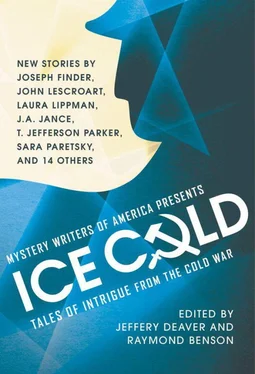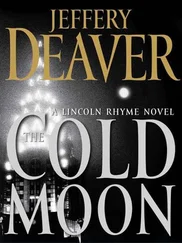“Put it on so we can check it again,” Gribkova ordered.
Inessa bent down and held her skinny arms over her head like a child so Ludmila could slip the dress over them.
“The petticoat too,” Gribkova said to Ludmila.
She helped Inessa climb into the layers of stiff netting.
The dress became a frothy confection that took Ludmila’s breath away.
“Walk,” Gribkova ordered. She peered critically at the model as she pranced up and down the workroom.
Ludmila peered too, chewing her lower lip.
Inessa stopped and whirled, showing off, as vain as if the dress belonged to her. It was sleeveless with a form-fitting bodice that ballooned into a full skirt. The cream colored silk was tissue-paper fragile, like moth wings. From a distance the fabric appeared to be spotted with fashionably large, multicolored polka dots. Closer, the dots resolved themselves into a pattern, each dot a traditional Ukrainian motif delicately rendered in shades of azure, carmine, teal, and sunflower. The tones suited Inessa’s bronze freckles, and the fit was perfect.
The dress was to be worn at cocktail parties, which were apparently common in the West, or so Ludmila had been told. Couples and young single professionals held them at their big suburban houses in the early evening before dinner. Everyone dressed up. Martinis and other fancy mixed drinks and appetizers were served. She herself had neither attended nor heard of any Russian attending or hosting such gatherings, but her social circles were limited to a few seamstress friends.
“Stop. Don’t move,” Gribkova ordered and picked up Ludmila’s razor-sharp shears. Holding them like a weapon, the open blades glinting in the light, she walked over and cut a dangling thread. Then she stood back.
She and Ludmila studied the dress looking for more flaws. Ludmila could see none.
“All right,” Gribkova said, with a curt nod. “You can take it off.”
Ludmila helped the model wiggle out of the dress, gingerly, so very gingerly. A ripped seam and they might find themselves both convicted of sabotage and sentenced to ten years’ hard labor.
Gribkova clapped her hands and addressed them all. “Workers. That is enough for today. Tidy up and then go home. Get some rest. It’s another early day tomorrow.”
Dutifully, Ludmila began to straighten up her workstation.
“Ludmila,” Gribkova said.
“Yes, Comrade Gribkova?”
“Stay behind. I want to speak to you.”
Ludmila swallowed. Had the senior designer changed her mind? Gribkova didn’t like the dress after all. It was to be purged from the collection. She might even censure Ludmila for individualistic tendencies and send her back to Minsk. Not trusting herself to speak, Ludmila nodded.
Once the others filed out, Gribkova wearily sank onto a stool. “I congratulate you. The Deputy Commissar has seen your dress and is satisfied that it is far superior to any American party dress. It will be a centerpiece of the New York City show.” She pronounced this news in the same stark tone that she denounced something as an utter and disgusting failure. “It embodies the style and comfort Comrade Khrushchev envisions for the modern Soviet woman.”
This wasn’t what Ludmila had been expecting. Her face turned hot, which she knew resulted in unbecoming blotches. “Oh,” she said, the word squeaky with relief. “Thank you, Comrade. That is very kind of you.” She realized she was babbling but couldn’t stop herself. “And him. Comrade Khrushchev. And all of them. Too kind. Of everyone.”
Gribkova seemed unmoved by gratitude. In the same icy tone, she continued, “Furthermore, when we go to New York, we will need a hard worker who’s skilled with a needle, someone able to handle any last-minute crisis that might arise. The deputy commissar has agreed. You will come to New York City.”
Ludmila’s face became even hotter, and no doubt even more blotchy, and her vision blurred. “Oh, thank you, Comrade Gribkova.”
“Just make sure I don’t regret my decision,” Gribkova said meaningfully.
Outside of the workroom, the lightbulb was burned out and the corridor deserted, but someone loitered, hidden by darkness.
“What do you want?” Ludmila asked, her tone more openly frightened than she intended.
Inessa stepped out of the shadows. “What did she say to you?” she asked conspiratorially, her eyes shining with excitement. “Whatever she said, she’s wrong. She’s just jealous. It’s the most beautiful dress I’ve ever worn. It’s as good as anything from the Paris salons. I was in Paris last year, you know.”
Despite her lack of respect for Inessa or her opinions about fashion, Ludmila flushed again. “Thank you,” she said stiffly, not wanting to encourage the girl’s familiarity. Inessa was half her age and flighty. Ludmila turned to go down the stairs, abruptly aware of a deep fatigue. Her eyes burned and her back ached.
Inessa linked arms as if they were old friends and accompanied her down the stairs. Ludmila’s short legs and Inessa’s stilts made a disjointed clatter on the scuffed wooden steps. Why this sudden friendship?
“I can’t wait to get to New York City,” Inessa continued. “What’s the first thing you’re going to buy?” Without waiting for an answer, she said, “Soviet Customs will turn a blind eye when we return if we slip them a little gift, you know. As long as we’re not too greedy. Not too much or too big. I’m going to buy a cashmere twin set at Saks Fifth Avenue. It is one of the best American department stores, you know. It will be violet or perhaps crimson. Which shade do you think would suit me better?” She batted her eyelashes at Ludmila.
“Either,” Ludmila said gruffly. How did Inessa know Ludmila would be going to New York City? Was it a guess? Or had she been eavesdropping?
“Or maybe silk pajamas. Igor would go wild. Igor’s my fiancé, you know. He might even set a wedding date under their influence. Or I could get a Maidenform brassiere,” Inessa chattered on, not seeming to expect responses.
They’d reached the street which was deserted at this late hour except for a porter on duty who was obviously KGB. Ludmila turned toward the Metro, which would take them to the Moscow State University dormitory where they’d been provided with temporary rooms. Inessa turned in the opposite direction.
“Aren’t you going back?” Ludmila asked.
“Not yet,” Inessa said with a coy giggle, and began to walk backward. “A friend is having a little birthday party. I want to drop in.”
Where did the girl get the energy? The young. Ludmila could barely keep her eyes open.
“Would you like to come?” Inessa asked. “Some very nice looking boys—men have been invited.”
“What about your fiancé?” Ludmila searched her memory for his name. “Igor?”
“He can’t come,” Inessa pouted. “He has to work late. He’s always working. He never wants to have any fun.”
Ludmila remembered he was some kind of scientist, a physicist, involved with missiles. If you could believe what Inessa said.
“Come with me. Live a little,” Inessa said.
“No, I can’t. Thank you. Another time perhaps.” Ludmila intended to fall into bed and sleep like the dead.
But later, when Ludmila tossed on her lumpy dormitory cot, she wondered if New York City was more curse than opportunity. If anything went badly, if the Party were unhappy with any aspect of the fashion exhibit or show, she would be a convenient scapegoat for Vladlena Gribkova.
Or was that Ludmila’s paranoia surfacing again? It never left her for long. All her life she’d been haunted by her parents’ fate. Her mother had been a tour guide and her father a translator of newspapers. One January night during Stalin’s time, when Ludmila was just a girl, both had been arrested by the secret police. Eventually she learned they’d been convicted of espionage and sent to a gulag, where they died. They’d both been innocent. Their only crime had been contact with foreigners and a knowledge of English. Such activities and skills might not currently be construed as treason, but that could change. Ludmila remained cautious and kept her own knowledge of English to herself.
Читать дальше












